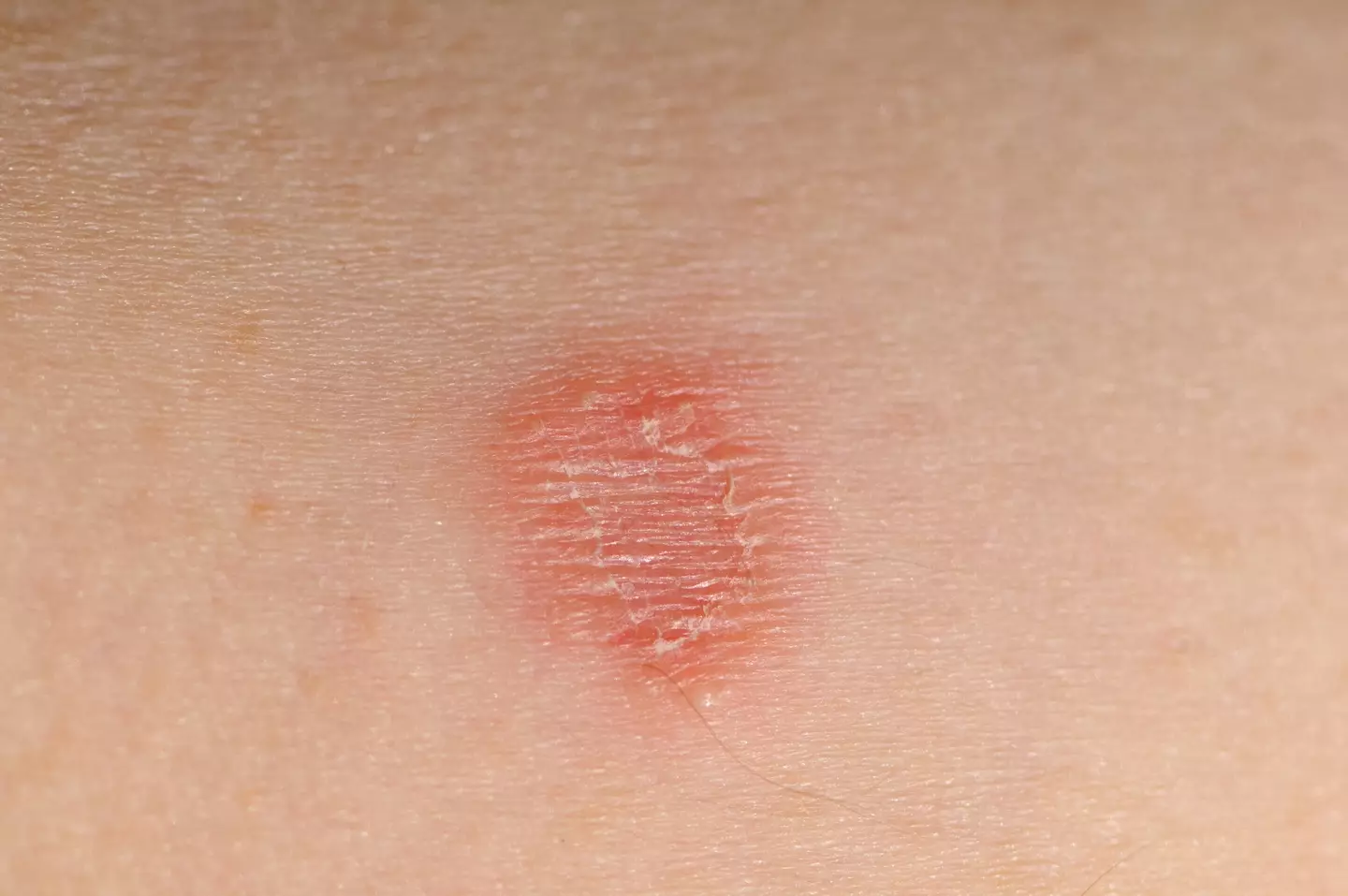Those suffering from asthma and chronic obstructive pulmonary disease (COPD) attacks are set to be given a ‘game-changing’ new treatment that could save more lives.
According to medical researchers, it’s the first real leap in the treatment for those with COPD and asthma.
More than five million Brits live with asthma, with a further 1.2 million being diagnosed with COPD. Both conditions kill, with roughly three people losing their lives every day from an asthma attack.

Inhalers are used by those suffering from asthma (Getty Stock Images)
Now, a new study has found that an injection is a more effective way to treat the conditions instead of prescribing steroid tablets. Such a change would also cut the need for further treatment by 30 percent, according to a study.
Benralizumab: what is it and how will it treat asthma?
Benralizumab is a monoclonal antibody that targets specific white blood cells, called eosinophils, to reduce lung inflammation. It is currently used as a repeat treatment for severe asthma at a low dose, but a new clinical trial has found that a higher single dose can be very effective if injected at the time of a flare-up.
The findings, published in the Lancet Respiratory Medicine, included 158 people who needed medical attention in A&E for their asthma or COPD attack (COPD is a group of lung conditions that cause breathing difficulties).
Patients were given a quick blood test to see what type of attack they were having, with those suffering an ‘eosinophilic exacerbation’ involving eosinophils (a type of white blood cell) being suitable for treatment.
Around 50 percent of asthma attacks are eosinophilic exacerbations, as are 30 percent of COPD ones, according to the scientists. The clinical trial, led by King’s College London and carried out at Oxford University Hospitals NHS Foundation Trust and Guy’s and St Thomas’ NHS Foundation Trust, saw patients randomly split into three groups.

Three people a day die from asthma attacks in the UK (Getty Stock Images)
One group received the benralizumab injection and dummy tablets, another received standard care (prednisolone steroids 30mg daily for five days) and a dummy injection, and the third group received both the benralizumab injection and steroids.
The benefits of Benralizumab
After 28 days, respiratory symptoms of cough, wheeze, breathlessness and sputum were found to be better in people on benralizumab.
And after 90 days, there were four times fewer people in the benralizumab group who failed treatment compared with those receiving steroids. Treatment with the benralizumab injection also took longer to fail, meaning fewer visits to a GP or hospital for patients, researchers said.
Furthermore, people also reported a better quality of life on the new regime. Scientists at King’s said steroids can have severe side-effects such as increasing the risk of diabetes and osteoporosis, meaning switching to benralizumab could provide huge benefits.

Benralizumab could save more lives (Getty Stock Images)
What are the scientists saying?
Lead investigator Professor Mona Bafadhel, from King’s, said: “This could be a game-changer for people with asthma and COPD. Treatment for asthma and COPD exacerbations have not changed in 50 years, despite causing 3.8 million deaths worldwide a year combined.
“Benralizumab is a safe and effective drug already used to manage severe asthma. We’ve used the drug in a different way – at the point of an exacerbation – to show that it’s more effective than steroid tablets, which is the only treatment currently available.”
Researchers said benralizumab could also potentially be administered safely at home or in a GP practice, as well as in A&E.
First author Dr Sanjay Ramakrishnan, clinical senior lecturer at the University of Western Australia, said: “Our study shows massive promise for asthma and COPD treatment.

Asthma can impact people of all ages (Getty Stock Images)
“COPD is the third leading cause of death worldwide but treatment for the condition is stuck in the 20th century. We need to provide these patients with life-saving options before their time runs out.”
Dr Samantha Walker, director of research and innovation at Asthma and Lung UK, welcomed the findings but said: “It’s appalling that this is the first new treatment for those suffering from asthma and COPD attacks in 50 years, indicating how desperately underfunded lung health research is.”
AstraZeneca provided the drug for the study and funded the research, but had no input into trial design, delivery, analysis or interpretation.
Featured Image Credit: Getty Stock Images
Topics: UK News, Health, Science

A psychologist has shared a series of tips on how to manage a seasonal disorder which is said to impact millions of Brits.
It’s a universally agreed fact that British winters are grim. After barely getting enough sunshine in the summer months, the nation is plunged into a demoralising mix of chilling temperatures, constant rain and the sun setting before the workday is even over.
Which means it wouldn’t be surprising if you found yourself feeling glum in the colder months.
However, there’s a chance you could be suffering from a common seasonal condition if you find the winters particularly challenging.

The colder months can be difficult for our mental health (Getty Stock Images)
Believed to impact around 2 million Brits, or one in 20 people, seasonal affective disorder can make dealing with the winter months particularly tricky. Meanwhile, the Royal College of Psychiatrists adds that 3 in 100 have a severe form of the disorder.
What is seasonal affective disorder?
Seasonal affective disorder (SAD) is sometimes referred to as ‘winter depression’, due to the fact that sufferers tend to notice symptoms in the colder months of the year.
It’s not known what exactly causes the condition, however, medical experts believe it’s linked to the decrease in sunlight exposure that causes a part of the brain known as the hypothalamus to stop working properly. This leads to a disruption in the body’s production of melatonin, serotonin as well as our circadian rhythms.
According to the NHS, symptoms of SAD can include:
- a persistent low mood
- irritability
- sleeping for longer than normal and finding it hard to get up in the morning
- increased lethargy
- feelings of hopelessness and despair
Depending on the severity of symptoms, SAD can have a significant impact on an individual’s day-to-day life.
How can I manage the symptoms of SAD?
When it comes to managing the symptoms of SAD, psychologist Dr Mark Rackley explained the best thing people can do is to ‘prepare’ for the change in season.
“Make your home comfortable,” he explained to TikTok’s Dr Alex George.
“Make your home feel inviting and cosy and warm, so even if you’re outside and the weather’s rubbish… once you step inside, that feels like your haven.”
Rackley also advised people who suffer with season changes to their mood to invest in a ‘daylight lamp’ and spend 20 minutes a day using it, as this can help ‘massively with resetting the melatonin in your brain’.

Light therapy lamps can be a useful tool for combatting SAD (Getty Stock Images)
Social care committee Healthwatch also advises people suffering with seasonal blues to make the most of daylight hours where possible, keep active as well as making sure their living spaces and work environments allow as much natural daylight as possible.
Featured Image Credit: (Getty Stock Images)
Topics: Weather, Health, Mental Health

A warning has been sent out to men across the country about their next visit to the barbers.
There aren’t many better feelings than getting a fresh trim, cleaning up the messy sides you’ve neglected for weeks and sporting that popular fade.
It’s been the ‘in’ hairstyle for years now, regardless of how long the hair on the top of your head is – but it turns out that getting skin fades in particular could put you at risk of a specific health issue.

Skin fades are causing the rise in cases of this health issue (Getty Stock Photo)
Cases of ringworm have increased drastically across the UK, and it’s said to be down to ‘cheap, dirty unqualified barbershops’.
It’s crucial that foil clippers used for skin fades are ‘thoroughly cleaned’, says Mike Taylor, who runs a barber training academy in Poole, Dorset.
The process takes about 10 minutes as they need to be disinfected, but Taylor believes that some barbers are skipping this step and has called on the government to put some new rules in place.
As a result, an increasing number of young men are catching ringworm from these uncleaned foil clippers.
What is ringworm?
The NHS describe ringworm as a ‘common fungal infection’ that isn’t ’caused by worms’, with medicines from a pharmacy usually being enough to treat it.
Not caused by actual worms, its main symptom is a rash, which may look red or darker than your regular skin, dependant on your tone.
The rash can be dry, itchy, scaly or swollen, and though it can appear anywhere, the type being talking about by Taylor is on the scalp, known scientifically as tinea capitis.
A pharmacist can usually recommend a type of tablet, cream, gel or spray to treat the rash, and they will tell you if you should see a GP.

A ringworm rash looks something like this (Getty Stock Photo)
How can ringworm be passed on?
As it is a type of fungi, it can be passed through close contact, either with an infected person or animal, objects and surfaces, or infected soil – the least common way of ringworm passing.
Why is ringworm a worry?
Speaking to the BBC, Taylor explained: “The high street is depleting, it’s dying and then suddenly there’s 12 barber shops on the same street and they’re all trying to go a little bit cheaper than each other.
“If the prices have to be knocked down then something else has to go and maybe it is all the time spent cleaning the equipment or the time spent getting the proper knowledge. Sometimes the cheapest price isn’t always the best price,” he highlighted.
He isn’t the only one that feels that rules should be changed though, as Gareth Penn, the registrar at the Hair and Barber Council, mentioned the need of a ‘mandatory register for those who wish to trade as hairdressers or barbers.’
The Hampshire-based council is a statutory authority for hairdressing in the UK, though it is only a voluntary register, the BBC reports.

An itchy scalp is a symptom of ringworm (Getty Stock Photo)
Penn further highlighted that the lack of a register opens the industry to ‘those that are not trained’, or ‘those who wish to use our industry as a front for illegal activity’.
A government spokesperson told The Mirror: “We have no plans to regulate the hairdressing sector, however we will always seriously consider evidence when it’s provided.
“We work closely with the industry to address skills and training needs, and HMRC is also working to tackle tax fraud in the sector.”
LADbible has reached out to the UK Government for further comment.



